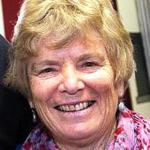
On the 25th April Kiwis and Australians turned out in their thousands, often at dawn, to remember the sacrifice of those who died during service for their country, particularly during both world wars. (Although any service overseas during the 20th century, and in recent times, is also alluded to.)
In recent years, as the numbers of servicemen and women have decreased, increasing numbers of younger people have turned out on ANZAC Day, with many proudly wearing the medals of their deceased great-grandparent or family member. The desire to remember, to honour ‘our fallen dead’, has only grown as the years have gone by. Why?
Keeping their names alive
Firstly, it is an acknowledgement that as a country, as communities and families, we do want to keep alive the memories of those who died. ‘Lest we forget.’ For many of those who died, their only posterity is their name on a monument.
There is also a growing recognition that it is not war that is being glorified, but rather the horrors of war and the unspeakable years that so many lived through.
More than remembering…
Yet there seems to be more involved in an ANZAC commemoration than simply the desire to remember.
People want heroes. In a world dominated by celebrities whose lives are marked by scandal and rumour, remembering ‘real heroes’ of another age, whose lives were lost in service for their country, strikes a chord.
The fact these ‘heroes’ were simply ordinary men and women ‘doing their duty’, means much more because they were ordinary, like us. Sometimes they carried out extraordinary exploits, selfless acts of bravery, that may or may not have been recognised with an award. (There needed to be an officer present to recommend any awards.)
Our society hasn’t deified these ‘heroes’, but any remaining service people from WW2 who are still alive, are often honoured by a tribute in the media around ANZAC Day, or there is a full-scale obituary when they do pass on. The veterans who died earlier didn’t usually get that treatment. Those who died in previous decades simply used to be acknowledged under a ‘Roll of Honour’, or when there was an ‘In Memoriam’ notice published in the newspaper.
Believing in something…
With the decline of faith in our increasingly secular society, there is a need to believe in something. WW ‘heroes’ fit that desire in a number of ways.
Because there is something of a collective memory of someone becoming one of us, identifying with us, and then dying on our behalf, this mindset sits comfortably with the notion of the ‘heroes’ who died during the conflicts in service for their country.
The death of young lives in conflict too echoes the death of a young 33 year old on the cross in Israel. His life was given up for a greater good – and so were the lives of countless men and women during conflicts that tore the world apart. “Greater love has no one than this, that he lays down his life for a friend.” Jesus’s words, are used time and time again during ANZAC commemorations, and are a direct link between the sacrifice of Jesus and the sacrifice of many.
ANZAC day gives meaning and purpose to lives lost so tragically young. We don’t ascribe to the sentiment of ‘Our Glorious Dead’ that is seen on a number of WW1 memorials, but there is a need for the deaths and impaired lives of so many service men and women to count, to matter, to belong to a greater good. WW2 particularly gives us that context; the necessity to overcome the evil that was Nazi-ism.
Culturally in recent times the mindset of our society has been fed on battles, and the battle between good and evil, through popular movies such as The Lord of the Rings, (the story was drawn from Tolkien’s own experience in WW1) and the Harry Potter series. It’s a natural connection then to believe in real heroes, in acknowledging the sacrifices involved in actual battles, that are part of who we are as a country.
When we come together to remember on ANZAC Day we can not only give thanks to God that the evil of Nazi-ism was overthrown, and for the sacrifice of the lives lost, but we can also ask that God will use this ‘community impulse’ to bring about a greater awareness of the One who has overcome death, and who will triumph at the end.

Liz Hay rejoices in living in a beautiful part of God’s creation in a high country mountain basin; and she also rejoices in hearing stories of God at work in people’s lives. One of her favourite activities is reading fascinating biographies that illustrate the wonderful ways God works uniquely with each person.